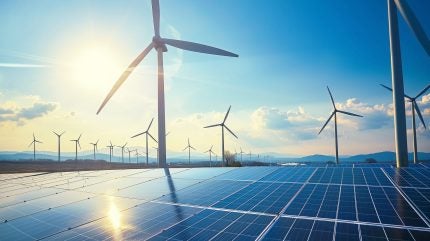
The World Bank has approved a $430m programme to modernise Tunisia’s energy sector through the Tunisia Energy Reliability, Efficiency, and Governance Improvement Program (TEREG).
The five-year programme, including $30m in concessional financing, aims to deliver a sustainable, reliable, and affordable electricity supply by accelerating renewable energy deployment, strengthening the country’s national utility (Tunisian Company of Electricity and Gas/STEG), and enhancing sector governance.

Discover B2B Marketing That Performs
Combine business intelligence and editorial excellence to reach engaged professionals across 36 leading media platforms.
In line with the Government of Tunisia’s updated energy transition strategy, TEREG will focus on strengthening the operational and financial performance of STEG.
The programme also aims to attract private investment and reduce the carbon intensity of power generation while ensuring reliable electricity access for households and businesses.
In addition, the initiative will support reforms to accelerate the deployment of renewable energy, improve energy efficiency, and modernise the domestic electricity sector.
World Bank Tunisia country manager Alexandre Arrobbio said: “By fostering renewable energy development, TEREG will strengthen Tunisia’s position in clean energy, creating economic opportunities and ensuring long-term energy security. This project reflects our strong partnership with Tunisia and supports its sustainable development goals.

US Tariffs are shifting - will you react or anticipate?
Don’t let policy changes catch you off guard. Stay proactive with real-time data and expert analysis.
By GlobalData“It builds on our longstanding engagement in Tunisia’s energy sector and complements ongoing initiatives like the Tunisia-Italy Electricity Integration Project (ELMED), the Energy Sector Improvement Project, and advisory services from the International Finance Corporation and the Multilateral Investment Guarantee Agency, aligning with Tunisia’s Country Partnership Framework and its commitments under the Paris Agreement.”
The TEREG programme is expected to help Tunisia mobilise $2.8bn in private investment to add 2.8GW of new solar and wind capacity by 2028.
It is also projected to create more than 30,000 jobs, primarily during the construction phase of renewable projects, and reduce electricity supply costs by 23%.
Additionally, STEG’s cost recovery is expected to improve from 60% to 80% while state subsidies are anticipated to decline by TD2.045bn ($691.02m).
World Bank senior energy specialist and project task team leader Amira Klibi said: “This is the first project to benefit from the World Bank’s Framework for Financial Incentives, receiving rewards for its size and long-term benefits in recognition of its impact on reducing greenhouse gas emissions.
“The programme’s reforms – such as reducing technical and commercial losses and increasing the share of renewables – are expected to deliver lasting improvements in the operational and financial performance of the sector, making electricity more affordable and reliable for households and businesses across Tunisia.”





